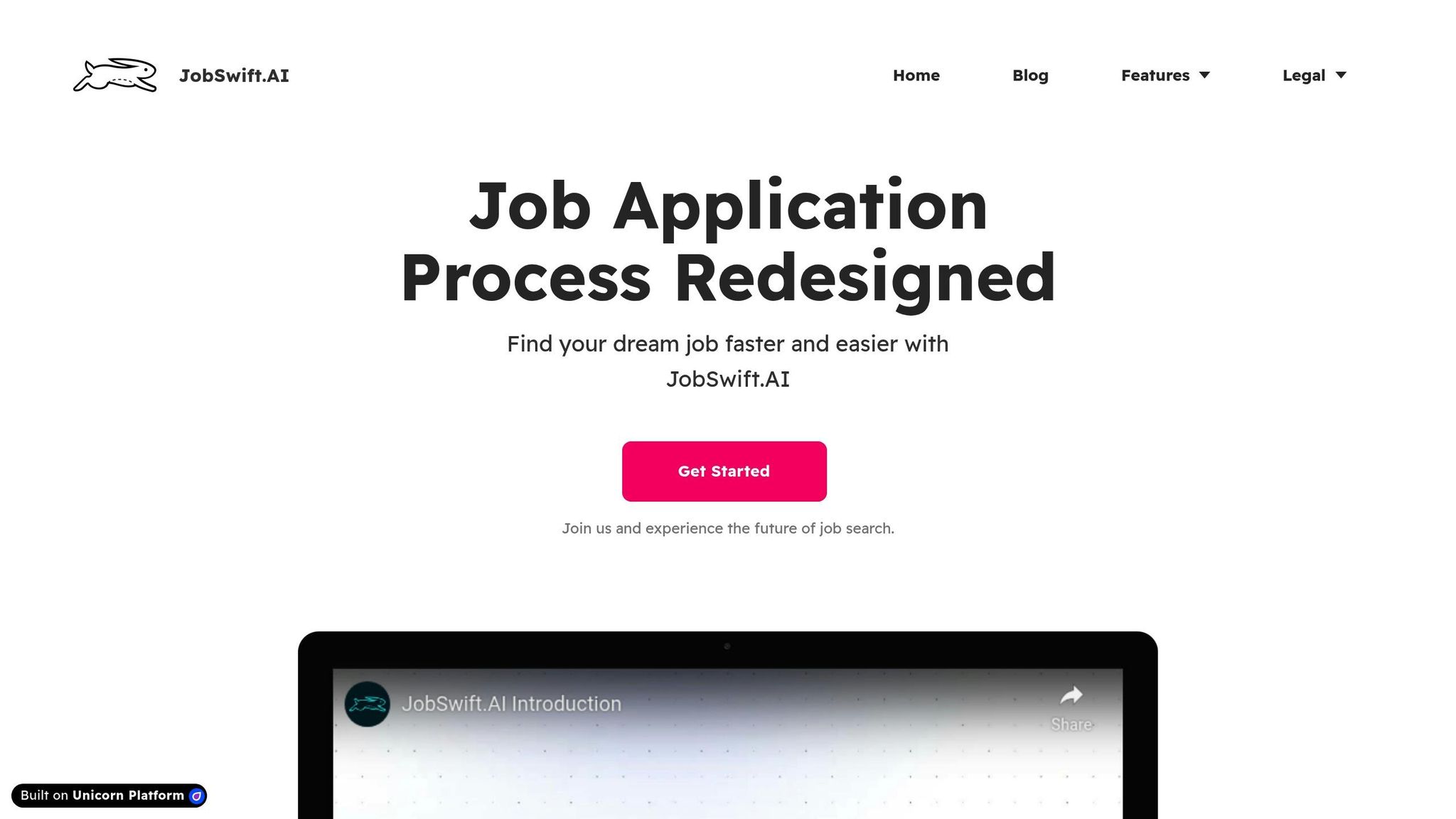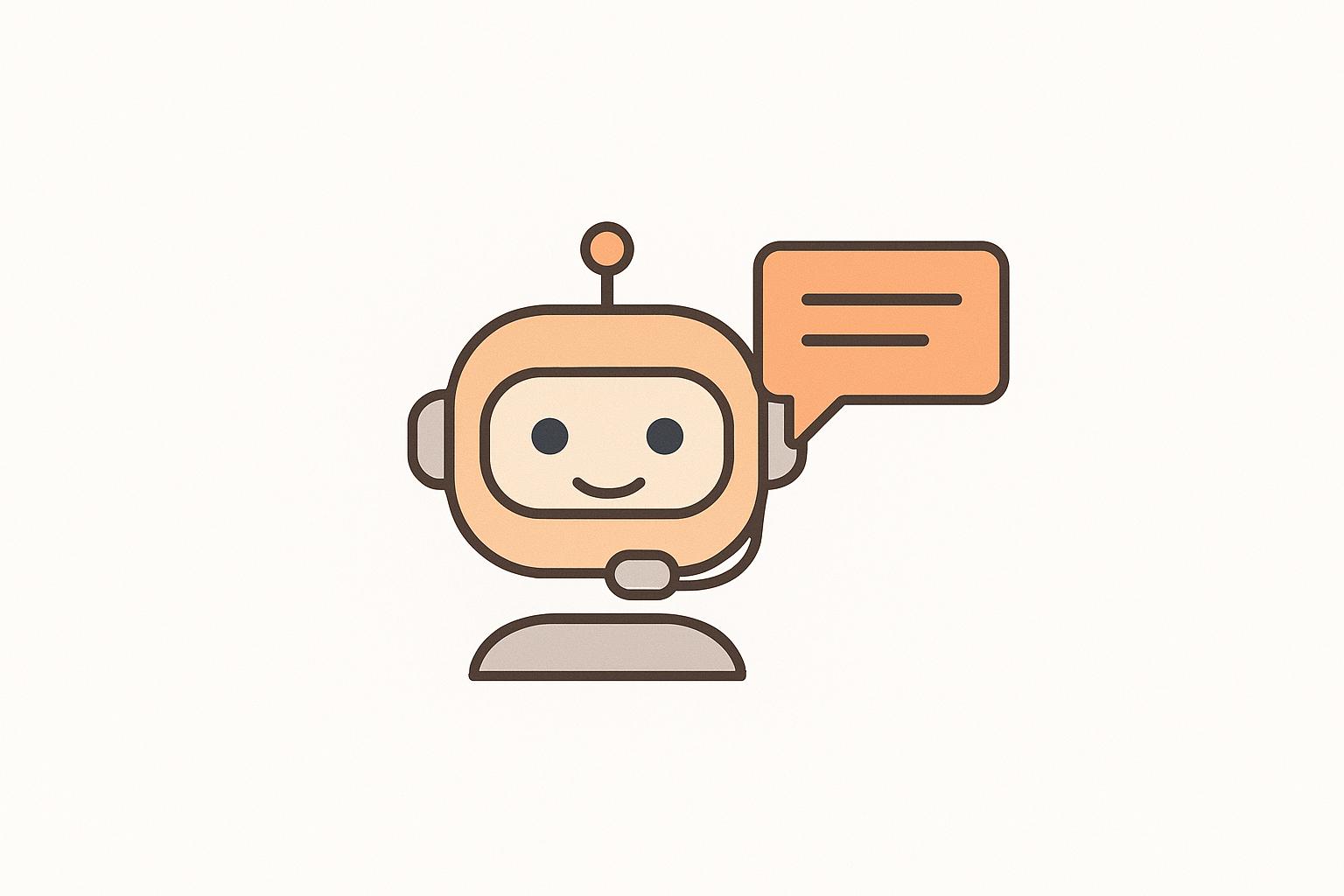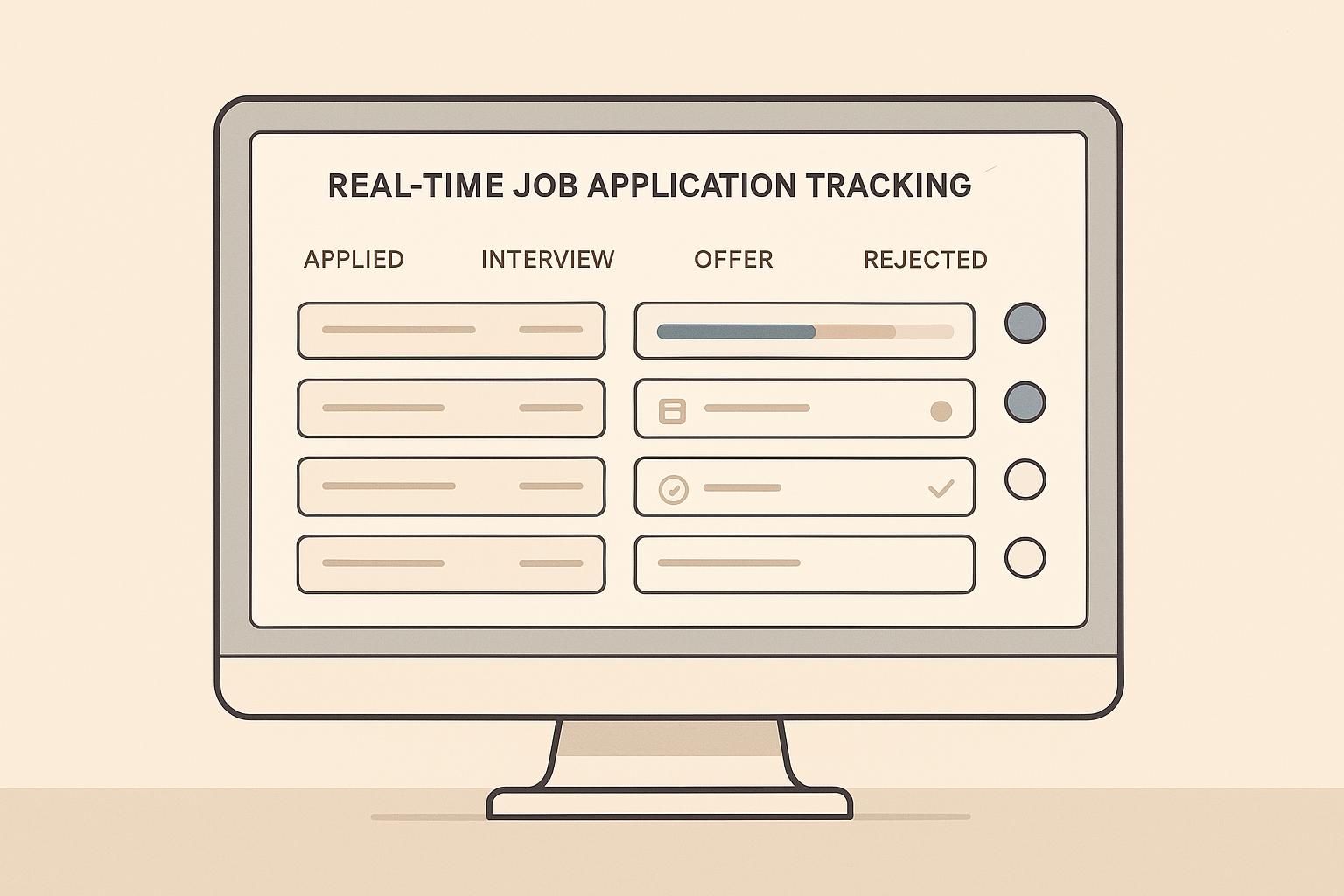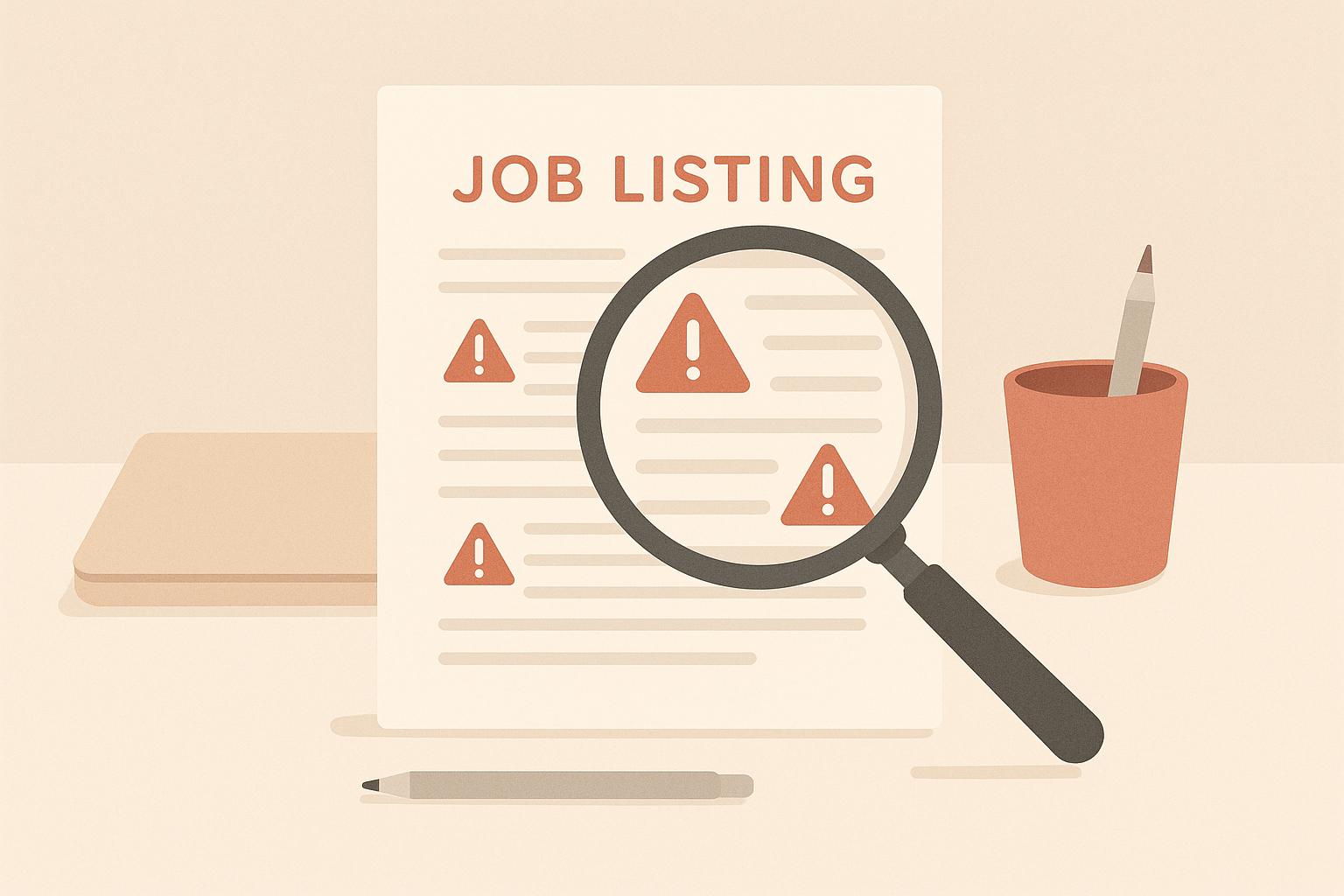AI is changing how resumes are created, making the process smarter, faster, and more effective. Here's how AI-powered tools help job seekers improve their resumes and stand out in competitive job markets:
- Tailored Resumes: AI analyzes job descriptions to match your skills and experience with what employers are looking for.
- Keyword Optimization: Ensures your resume passes Applicant Tracking Systems (ATS) by including the right keywords.
- Time Efficiency: Cuts resume preparation time from hours to minutes.
- Real-Time Feedback: AI tools provide instant suggestions to improve clarity, formatting, and content.
- Better Results: Job seekers using AI report higher interview rates and job offers.
However, AI isn't perfect - it may lack personal touches or misinterpret nuanced details. To get the best results, combine AI's technical insights with your unique voice and experiences.
I've Reviewed 1,000+ Resumes - Here’s How to Use AI to Land More Interviews
How AI Improves Resume Branding
AI is reshaping the way job seekers create resumes, turning what was once a guessing game into a precise, data-driven process. Instead of crossing your fingers and hoping your resume resonates, AI tools analyze vast amounts of job market data to help you craft a resume that aligns with what employers are actually looking for. These tools ensure your resume not only appeals to hiring managers but also passes the filters of applicant tracking systems (ATS).
This shift is a game-changer. Traditional resume writing often leaves candidates uncertain about whether they’re emphasizing the right skills or using the right keywords. AI eliminates that uncertainty by offering real-time insights based on current job requirements and industry trends. The results speak for themselves - some users have reported an impressive interview rate of 62.18% after using AI tools to refine their resumes. This data-driven approach highlights the stark difference between AI-enhanced resumes and traditional methods.
Moving from Traditional to AI-Powered Resumes
Think of the difference between traditional and AI-powered resumes as the leap from using a paper map to navigating with GPS. Traditional methods rely on generic templates and outdated assumptions. AI-powered tools, on the other hand, analyze job descriptions in real time, pinpointing the most relevant keywords and skills. They then help you seamlessly integrate these into your resume.
But these tools don’t stop at simple keyword matching. They understand the nuances of context, industry-specific terminology, and the competencies that employers value most.
"This tool and Chrome extension significantly reduce the time needed to: 1) track job postings and applications (email wasn't organized, spreadsheets are manual) and 2) tailor resumes. Its resume builder excels at identifying keywords and assessing alignment." – Grace Shinn, Senior Operations Associate
By enabling tailored content, AI ensures your resume is not just functional but also aligned with employer expectations.
How AI Matches Resumes with Employer Needs
AI does more than optimize keywords - it ensures your personal brand aligns with what employers want. These tools analyze industry standards, resume trends, and job market data to help your resume reflect hiring managers’ priorities. They can identify skill gaps, recommend experiences to highlight, and suggest ways to effectively present transferable skills.
The process starts with a detailed analysis of job descriptions. AI tools scan postings to identify critical skills, experience requirements, and industry-specific language. They then compare this data to your background, generating tailored recommendations. This level of precision explains why 83% of recruiters prefer customized applications. A well-aligned, AI-enhanced resume not only improves visibility but also boosts engagement with potential employers.
AI also addresses technical details that are often overlooked. These tools ensure your resume meets ATS requirements by optimizing formatting and keyword density. Many AI builders include scoring systems to evaluate ATS compatibility and suggest improvements, ensuring your resume passes automated filters while remaining appealing to human recruiters.
Additionally, AI refines your resume’s presentation by quantifying achievements and recommending stronger action verbs. For instance, instead of writing "responsible for financial analysis", AI might suggest "conducted in-depth financial analysis to identify cost-saving opportunities, leading to a 12% reduction in operational expenses."
The impact of these tools is clear. Statistics show that AI can increase hiring efficiency by up to 20%, while minor errors in language can significantly harm your chances of landing a job. By combining precision with presentation, AI-powered tools make your resume a powerful asset in the job market.
Key AI Tools and Features for Resume Branding
Modern AI-powered tools are reshaping how resumes are crafted, offering data-driven features that analyze job trends and deliver tailored recommendations. These advancements aren’t just for show - algorithm-enhanced resumes have been linked to a 7.8% increase in job offers and positions with 8.4% higher salaries.
AI Resume Builders for Custom Content
AI resume builders go beyond cookie-cutter templates, using algorithms to craft content specific to your industry and career goals. These tools analyze your professional background and the requirements of your target roles to generate personalized, dynamic recommendations. Unlike traditional templates, which often feel generic, AI builders adapt to your unique experience and aspirations.
By examining thousands of successful resumes, these tools identify impactful language and patterns that resonate with employers. They help you quantify achievements, refine phrasing, and incorporate industry-relevant terminology. For example, instead of vague job descriptions, they suggest polished bullet points that emphasize measurable results. Some AI tools blend expert-written input with algorithmic suggestions, while others handle the process entirely. The challenge lies in finding a tool that strikes the right balance - allowing for automation without losing your personal voice, while optimizing your resume for employer preferences.
Real-Time Feedback and Optimization
AI tools don’t just help you create a resume - they refine it as you go. One standout feature is real-time feedback, which offers instant suggestions to enhance clarity, impact, and overall presentation.
This feature works by scanning your content live, flagging areas for improvement. It might recommend stronger action verbs, highlight missing keywords, or point out formatting inconsistencies to boost compatibility with applicant tracking systems (ATS). The result? A resume that evolves and improves with every tweak you make.
The time savings here are hard to ignore. For instance, one user shared that AI-assisted suggestions cut their resume prep time from 1–2 hours to just 15 minutes, all while maintaining a high response rate from potential employers.
AI Employer Insights for Targeted Branding
AI tools don’t stop at content creation - they also provide insights that help you tailor your resume to specific employers. By analyzing job postings, company values, and hiring trends, these platforms go beyond simple keyword matching. They help you align your resume with what employers are really looking for.
For instance, AI tools can identify industry-specific jargon, preferred qualifications, and even cultural values that should be reflected in your resume. Some industries might prioritize innovation and flexibility, while others value compliance and meticulous attention to detail. By weaving these insights into your personal branding and experience descriptions, you can make a stronger connection with hiring managers.
Take JobSwift.AI as an example. This platform dives deep into employer insights, offering tools to refine your resume’s strategic focus. Its upcoming AI CV optimization feature will take this even further, enabling users to align their resumes with precise employer preferences based on detailed analysis.
The customization doesn’t end with content - AI tools also recommend the best formats for your industry. Whether it’s a traditional chronological layout for more formal sectors or a creative design for roles in fields like marketing or design, these suggestions ensure your resume looks as good as it reads.
The stats back it up: job seekers who customize their resumes are 2.21 times more likely to land interviews. AI-driven insights make this level of personalization scalable, allowing you to adjust your resume for multiple opportunities without starting from scratch each time. That’s a game-changer for anyone navigating today’s competitive job market.
Step-by-Step Guide: Using AI to Build a Branded Resume
Follow these steps to create an AI-powered branded resume that reflects your professional identity while meeting employer expectations. This guide provides practical, easy-to-follow actions to help you stand out.
Step 1: Self-Assessment with AI
Before jumping into resume creation, take a moment to understand what sets you apart. AI tools can guide you through structured self-reflection, helping you identify your core strengths, values, and career goals. By answering targeted questions, you can uncover what makes you you - and these insights become the backbone of your personal brand. This ensures your resume highlights your most valuable traits and aligns with your career aspirations.
Step 2: Analyze Job Descriptions for Key Skills
Once you’ve identified your strengths, it’s time to match them with what employers are looking for. AI tools can analyze job descriptions to pull out critical skills, preferred qualifications, and key industry-specific terms. This process helps you identify the areas where your expertise overlaps with employer needs, so you can tailor your resume to showcase the most relevant skills.
Step 3: Create a Personal Brand Statement
Your personal brand statement is like your professional elevator pitch - a short, impactful summary of who you are and what you bring to the table. AI platforms can help craft this statement by combining insights from your self-assessment with market demands. Many tools even offer brand statement generators that ask for details about your role, career goals, and unique qualities, then produce draft statements for you to refine.
The trick is to balance authenticity with market appeal. AI can suggest language that resonates with potential employers while staying true to your voice. As William Arruda, a Senior Contributor at Forbes, puts it:
"Your personal brand statement serves as a reminder of your unique promise of value."
Take the AI-generated suggestions and tweak them until they feel like you.
Step 4: Optimize Resume Content for ATS and Readability
With your personal brand nailed down, the next step is making sure your resume works for both humans and Applicant Tracking Systems (ATS). Start by rewriting your summary into a sharp, 3-5 sentence overview that highlights your key skills and achievements. AI tools can also help transform generic job duties into quantifiable accomplishments. For example, instead of simply stating you managed social media accounts, you could highlight measurable results like boosting engagement or driving lead generation through strategic campaigns.
AI can also scan your resume for formatting issues, keyword optimization, and structural improvements to ensure it’s ATS-friendly. It might suggest using standard headers, avoiding graphics that ATS can’t read, or fine-tuning the keyword density to naturally align with job descriptions.
Step 5: Track and Improve with AI Dashboards
Your resume isn’t a one-and-done project - it’s a living document that evolves with your career. AI-powered dashboards can help you track how well your resume performs and make updates based on feedback. Platforms like JobSwift.AI offer tools to monitor which versions of your resume get the most responses, helping you fine-tune it for specific roles or companies.
These dashboards also keep you informed about shifting market trends, ensuring your resume stays relevant. Think of it as a dynamic tool that grows alongside your career and adapts to the ever-changing job market.
sbb-itb-96bfd48
Benefits and Drawbacks of Using AI for Resume Branding
AI-powered resume tools have revolutionized how we approach resume branding, offering a mix of benefits and challenges. Like any tool, their value depends on how they’re used.
Let’s start with the positives. AI can handle the heavy lifting, saving you time by creating polished resumes in just minutes instead of hours. It’s also great at tailoring resumes to specific industries, job types, or even the keywords that employers are actively searching for. Plus, it ensures consistent formatting, giving your resume a professional edge. These features make the process smoother and more efficient, but they’re not without trade-offs.
One of AI’s standout strengths is bridging the gap between your qualifications and what employers are looking for. With 88% of employers missing out on strong candidates simply because their resumes lack ATS-friendly keywords, AI’s ability to optimize for these systems is a game-changer.
"That means that AI assistance can be a useful tool for those hoping to get hired." – Emma van Inwegen, PhD student at MIT Sloan
However, these advantages come with some challenges. AI-generated resumes can sometimes feel impersonal, lacking the unique qualities that make you stand out. Context and nuance can also be tricky - AI may overlook industry-specific details or fail to fully capture the breadth of your experiences. Even more concerning, 67% of hiring managers believe they can spot AI-generated resumes, which could hurt your chances if the content feels overly automated.
There’s also the risk of relying too heavily on AI, which might stifle your creativity in presenting yourself. And while AI tools are helpful, they’re not perfect. They can introduce errors, such as awkward phrasing or formatting issues, that require a careful eye to catch.
Comparison Table: Pros and Cons of AI in Resume Branding
| Advantages | Drawbacks |
|---|---|
| Time Efficiency: Creates professional resumes quickly | Generic Content: May lack a personal, unique touch |
| Better Outcomes: Linked to 7.8% more job offers and 8.4% higher salaries | Context Limitations: Struggles with nuances and specific details |
| Keyword Optimization: Ensures ATS-friendly terms employers need | Detection Risk: 67% of hiring managers can recognize AI-generated resumes |
| Professional Appearance: Delivers consistent, polished formatting | Skill Erosion: Overuse might limit your creativity and writing skills |
| Real-Time Suggestions: Offers continuous improvement tips | Potential Errors: Can include formatting or content mistakes |
| Industry Customization: Aligns resumes with specific job requirements | Template-Based: Often follows generic patterns that lack individuality |
To make the most of AI, think of it as a tool to enhance - not replace - your input. Let AI handle the technical aspects like keyword integration, formatting, and error detection. Meanwhile, focus on infusing your personality and experiences into the final product. This balanced approach allows you to enjoy AI’s efficiency while maintaining the authentic voice that sets you apart in today’s job market.
How JobSwift.AI Improves Resume Branding

JobSwift.AI tackles the challenges of resume branding head-on with its smart AI-driven tools. In a market where branding can make or break interview opportunities, this platform bridges the gap between job seekers and their dream roles. With stats showing that 75% of resumes don’t make it past Applicant Tracking Systems (ATS) and recruiters spending a mere six seconds on each application, JobSwift.AI is designed to help you stand out.
One of its standout features is AI employer insights, which pinpoints exactly what hiring managers in your industry and role are looking for. By analyzing job descriptions, the platform suggests specific keywords to include in your resume. This ensures that your personal brand stays aligned with the needs of potential employers.
"Never generate a fake CV from scratch. Instead, fine-tune your own CV to boost your chances against Automated Tracking Systems."
– JobSwift.AI
Another upcoming feature, AI CV optimization, takes this a step further. It identifies crucial keywords from job postings and adjusts your resume without compromising your personal tone. Instead of churning out generic, template-based resumes, JobSwift.AI fine-tunes your existing one for better ATS compatibility while keeping your individuality intact.
The platform doesn’t stop at resume optimization. Its application dashboard helps streamline your job search process by maintaining brand consistency. With job seekers often submitting between 100–200 applications to land a position, knowing which resume versions perform best is crucial. This dashboard allows you to compare versions, track application performance, and refine your strategies based on real data . It’s a tool designed to help you improve your personal brand over time.
JobSwift.AI offers both free and Pro plans, making it accessible to a wide range of users. Testimonials like that of Isaiah Summers highlight its impact: "JobSwift.AI has made my job search so much easier. I highly recommend it!". By combining personal branding with technical precision, this platform is setting a new standard for job seekers everywhere.
Conclusion: The Future of Resume Branding with AI
The way we approach resume branding is on the verge of a major shift, thanks to the growing influence of AI. With nearly half of job seekers - 45% - already using generative AI to craft or refine their resumes, and 90% of hiring managers open to AI-enhanced elements in applications, it’s clear that AI is becoming a cornerstone of professional self-presentation.
Looking ahead, AI tools will take resume personalization to the next level. These tools will create resumes that not only align with your career goals but also reflect company values and specific hiring needs. Imagine software that can analyze your experience, predict relevant skills, suggest career paths, and even help you prepare for interviews - all while keeping your unique story intact. This kind of precision will ensure resumes remain relevant in a constantly shifting job market.
"Personalization is evolving from general experiences based on demographics to highly individual interactions based on unique search intent, preferences, and context. And generative AI-powered solutions can help brands deliver hyper-personalized experiences at scale." - Paul Longo, GM of AI Ads at Microsoft Advertising
The days of plain, text-only resumes are numbered. A striking 71% of respondents believe these traditional formats will vanish within five years. The future belongs to interactive, multimedia resumes featuring video introductions, audio snippets, and dynamic infographics. In fact, nearly 60% of hiring managers already prefer resumes with visual elements, signaling a clear shift in expectations.
But with all these advancements, job seekers must tread carefully. While AI can enhance and streamline the process, it’s crucial that your resume remains a genuine reflection of who you are. AI works best as a tool to support your expertise - not as a substitute for it.
As the AI-driven job market is projected to grow by 38% annually from 2024 to 2030, adopting these tools will be key to staying competitive. Platforms like JobSwift.AI are already leading the charge, offering ways to optimize resumes while preserving your personal brand.
Ultimately, while AI can refine and elevate the technical aspects of your resume, your individuality is what will truly make it stand out. Think of your resume as a living document - a dynamic showcase of your professional journey that highlights what makes you unique.
FAQs
How does AI help make my resume stand out to employers using ATS?
AI can play a big role in making your resume shine, especially when it comes to getting through Applicant Tracking Systems (ATS). These systems are widely used by companies to sort and rank resumes, and AI tools can help tailor your resume to meet their requirements.
By analyzing job postings, AI can recommend the right keywords, fine-tune the layout, and adjust the structure of your resume to improve its chances of passing ATS filters. It can also pinpoint areas that need work, like missing skills or vague language, ensuring your resume matches what employers are looking for and performs better in digital screenings.
Using AI doesn’t just save you time - it increases the likelihood that your resume will make it past the initial hurdles and grab attention in today’s competitive job market.
What are the potential downsides of using AI to improve my resume, and how can I address them?
Using AI to improve your resume can be helpful, but it also comes with some challenges. One common issue is that AI-generated resumes may feel generic or lack a personal touch, failing to showcase your unique talents and experiences. Another potential problem arises when your input - like job descriptions or accomplishments - is unclear or poorly structured. In such cases, the AI might misinterpret your qualifications, which could cost you valuable opportunities.
To overcome these pitfalls, take the time to review and refine the AI-generated content. Make sure it accurately represents who you are and what you bring to the table. Provide clear, detailed, and well-organized information about your skills, achievements, and career goals. This ensures the AI creates a resume that not only highlights your strengths but also aligns with your professional identity.
How does AI help create a resume that's tailored to my career goals and experiences?
AI takes resume writing to the next level by analyzing your professional experience, skills, and career ambitions to create a resume that truly reflects who you are. It crafts personalized content, including customized summaries and impactful bullet points, designed to highlight your strengths and align with your career goals.
By fine-tuning your resume to meet industry expectations and work seamlessly with applicant tracking systems (ATS), AI ensures your application remains polished, genuine, and competitive - giving you an edge in the job market.


